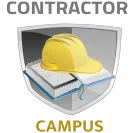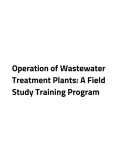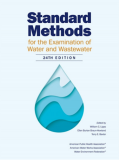Georgia Wastewater System Collection Operator License
The Wastewater System Collection Operator License allows you to operate systems of:
- Sanitary sewers
- Pumps
- Pipes
- Manholes
- Apparatus used to convey sewage to wastewater treatment plants
How to Get the Wastewater System Collection Operator’s License in Georgia?
- Complete the 27-hour wastewater collection approved course
- Take and pass the PSI© Wastewater System Collection exam
- Meet the experience and education requirements:
- A minimum of a high school diploma or GED certificate
- Three months of work experience
- Submit an application form
- Attach the required documents:
- Proof of Training
- High School/GED/College Transcript
- Experience Dates
- Job Description
- Secure & Verifiable Document
- Affidavit of Citizenship
- Immigration Documents (If applicable)
- Background Check: can be obtained at the local law enforcement office
- Background Consent Form (If applicable)
- Disciplinary Action/Sanctions
- Court Documents
- Letter of Explanation
- Await for the Board of Examiners for Certification of Water & Wastewater Treatment Plant Operators and Laboratory Analysts response regarding the license issuance
Applicants may take the examination before the experience requirement is met, but shall not apply for the certifications until completing the requisite experience in the actual system operation.
Georgia Wastewater System Collection Operator License Exam Prep Course
Georgia Wastewater System Collection Operator License Exam
Below is all the information related to the trade exam, including the official reference list.
Georgia Wastewater System Collection Operator Trade Exam
- Testing Method: Computer-based testing; closed book
- Testing Company: PSI©
- Number of Questions: 100
- Types of Questions: Multiple Choice
- Subjects Involved (No. of Questions):
Equipment Operation, Evaluation, & Maintenance (28)
- Adjust and calibrate gas meters, flow meters, and blower meters
Clean the collection system through the use of:
- Hydraulic cleaning (e.g., balling, flushing, poly pigs)
- Jet rodding
- Blockage removal
Operate the following equipment:
- Computers
- Heavy equipment (e.g., vehicles requiring a CDL license)
Evaluate and maintain the operation of equipment by:
- Reading charts
- Reading gauges
- Reading meters
Evaluate and maintain the operation of electrical equipment:
- Variable frequency drives (VFD's)
- Motor control centers
- Low voltage equipment (e.g., flow meters, float switch, PID controls, pressure sensors)
Inspect system using the following approaches:
- Dye testing
- Physical inspection
- Smoke test
Rehabilitate and repair collection system:
- Lift station (e.g., wet wells, fittings and piping)
- Manholes
- Sewer lines
- Taps (e.g., top hat, grouting, protruding laterals)
- Infiltration, inflow, exfiltration
- Inspect equipment or monitor operating conditions, meters, and gauges to determine load requirements and detect malfunctions of lift station
- Inspect the operation of equipment to determine malfunction
- Perform system inspections (e.g., air release valves, inlets, manholes, outfalls, overflows, regulators, siphons, sluice gates)
Perform preventative maintenance including repair, replacement, and installation of the following equipment:
- Chemical feed systems
- Motors
- Pumps
- Valves
- Compressors
- Engines
- Gearboxes
- Generators
- Pneumatic and hydraulic systems
Operate the following equipment and/or tools:
- Aeration tanks and blowers
- Backflow prevention devices
- Backhoes
- Chain pull hoists and overhead cranes
- Chemical feed systems
- Chlorination systems
- Dump trucks
- Pumps (fixed and portable, all types)
- Engines
- Flushing unit (dumping water into the system)
- Front-end loaders
- Hydrant operations
- Metal detectors and pipe locators
- Pneumatic tools
- Power tools (e.g., drills, grinders, saws)
- Precision measuring instruments
- Rodding equipment
- Manhole guide rollers
- Samplers
- Tapping equipment
- Testing equipment
- Fans (e.g., forced air, air extraction)
- Easement hydro-jetter machine (portable)
Collection System Operation, Maintenance, & Restoration (20)
- Clean and maintain tanks (e.g., wetwells, chemical, holding)
- Collect and document data from charts, gauges and other instrumentation
- Excavate wastewater mains and lines
- Use high pressure hydraulics to clean wastewater mains and lines
- Inspect structures (e.g., manholes, vaults, wet wells for damage, cave-ins, and debris)
- Interpret blueprints, GIS, and sketches of system showing location and configuration of collection system components
- Lubricate engines and pumps
- Maintain all equipment (e.g., pumps, motors, chlorinators, chemical feeds) in accordance with OEM specifications
- Maintain an inventory of chemicals and materials
- Monitor panel board and adjust controls to regulate flow rates
- Operate pumping equipment during emergency bypass operations
- Operate odor control devices and systems
- Perform maintenance and inspection through the use of:
- Hydraulic cleaning
- Rodding
- Closed circuit television (CCTV) camera inspection and locating
Lift Station Operation & Maintenance (18)
Ensure that the following electrical devices are functioning properly:
- Fuses
- Motors
- Relays
- Starters
Ensure that the following electronic devices are functioning properly:
- Alarms
- Controllers
- Gas detection
- Level detection system
- Telemetry (e.g., RTU’s, SCADA, PLC’s)
Ensure that the following devices are functioning properly:
- Piping
- Pressure relief valves (e.g., compressors, hot water heaters)
- Chemical addition
- Pumps
- Wetwells (e.g., screens and level controls)
- Air relief/vacuum valves (force mains)
- Seals
- Air exchangers/exhaust fans
- HVAC systems
- Adjust equipment and increase or decrease pumping capacity for proper flow
- Perform calculations to ensure proper operations
- Calibrate and adjust variable frequency drive (VFD) systems
Monitor panel board and adjust controls to:
- Loss of head pressure
- Wetwell elevation
Operate the following equipment and/or tools:
- Bar screens
- Wetwells
- Variable frequency drives (VFD’s)
- Electric motors
Collection System Monitoring, Evaluation, & Adjustment (18)
Perform adjustments on the following components of the collection system:
- Aeration for hydrogen sulfide control
- Chemical addition for hydrogen sulfide control
- Flow monitoring
- Force mains
- Gravity sewers
- Lift stations
- Manholes/cleanouts
- Measuring and control systems
Calibrate and adjust the following systems:
- Atmosphere testers
- Level and flow meters
- Telemetry equipment
- Check equalization basins and CSO structures
- Ensure accurate sampling of waste collection system according to standard methods
- Identify physical and/or abnormal characteristics of wastewater
- Inspect the installation of piping
- Operate electric motors, pumps, and valves to regulate flow
- Repair and replace:
- Sewer lines
- Combined sewer lines
- Review automated information and control system data and revise settings as required
- Utilize wastewater analysis devices for chemical detection in collection systems (e.g., nitrate, hydrogen sulfide, pH, phosphorous)
- Operate flow sensors
Security, Safety, & Administrative Procedures (16)
- Analyze/estimate cost (e.g., equipment, material, power, fuel, staffing)
- Analyze regulatory and/or compliance requirements
- Assign work crews to work areas
- Assist in the handling, delivery, and storage of chemicals
- Authorize equipment repairs
- Compile technical and statistical data and prepare comprehensive written reports
- Comply with all health and safety procedures and protocols
- Conduct safety inspections
- Configure traffic plans and set up signs for traffic control
- Coordinate wastewater program activities with other divisions and outside agencies, contractors, and developers
- Determine work schedules for closed circuit television (CCTV) crews
- Determine location of underground utilities (e.g., combined sewers, cross connections, force mains, inlets, laterals, manholes, outfalls, sanitary sewers, laterals)
- Develop operating and capital budgets
- Develop preventive maintenance procedures
- Develop safety procedures
- Develop training programs (e.g., start-up and testing, standard operating procedures, and technical documentation for operations)
- Comply with safety standards and safety programs
- Ensure compliance of discharge limits are in accordance with all applicable local, state and federal regulations
- Establish wastewater policies, procedures, and guidelines
- Assess training needs to upgrade operational skills
- Implement a QA/QC program to ensure that products and services received meet contractual requirements
- Inspect and analyze system logs records, gauges, meters, and other testing and measuring devices
- Investigate various customer issues (e.g., sewer backup and/or odor complaints)
- Maintain knowledge of regulatory permit requirements
- Maintain effective working relationships with city officials, employees, public, and outside agencies
- Manage employee certification programs
- Maintain records and file reports (e.g., internal or regulatory requirements)
- Maintain knowledge of current regulatory requirements
- Monitor status of customer work orders and assure customer responsiveness
- Monitor work and job site condition to ensure protection of workers, public pedestrian and vehicular traffic
Perform the following administrative activities:
- Safety/security evaluation and compliance
- Budget development
- Capital improvement plan development
- Operation and maintenance plan development
- Employee supervision and performance evaluations
- Planning and organization of work activities
- Record keeping and evaluation of data
- Responses to public complaints
- Report writing (e.g., federal, internal, state)
Perform the following safety procedures:
- Calibration of atmospheric testing devices
- Chemical spill responses
- Confined space entry
- Electrical grounding, hazards and arc flash
- Fires (e.g., prevention, fire extinguishers)
- First aid
- Hazardous materials
- Infectious diseases/blood borne pathogen protection
- Lifting
- Lockout/tagout
- Personal protection equipment (e.g., respiratory protection, safety glasses, gloves, hardhats, fall protection)
- Shoring, trenching, and excavation
- Traffic control/work zone safety
Plan for the execution of the following emergency plans:
- Sewer overflow
- Disasters
- Manhole hazards
- System failure
- Inter-agency assistance
- Perform facility safety audits
- Prepare bid specifications
- Purchase replacement equipment
- Review/update employment policies and procedures
- Review employee reports regarding customer back up in home
- Train new operators
- Review easement and right-of-way issues/problems
- WPI Wastewater System Collection Operator Official Content Outline
Georgia Wastewater System Collection Operator Book Set
This set of books includes all required references for the Wastewater System Collection Operator exam. Orders placed before 2 PM are shipped the same day via UPS and a tracking number is emailed before 3 PM.
GEORGIA WASTEWATER SYSTEM COLLECTION OPERATOR - BOOK SET WITHOUT TABS INCLUDES ALL BOOKS FOR TRADE AND BUSINESS EXAMS
Sales price: $2,855.13-
GEORGIA WASTEWATER SYSTEM COLLECTION OPERATOR - BOOK SET WITH TABS INCLUDES ALL BOOKS FOR TRADE AND BUSINESS EXAMS
Sales price: $2,955.13
Georgia Wastewater System Collection Operator Exam Books
Books Not Allowed in Testing
-
From safe practices for excavation sites to s...Operation and Maintenance of Wastewater Colle
r1537 1$133.33$133.33 -
This book provides training resources for ope...Operation and Maintenance of Wastewater Colle
r1538 1$133.33$133.33 -
The book describes how wastewater treatment p...Operation of Wastewater Treatment Plants. A F
r1307 1$135.79$135.79 -
This book will have important information on ...Operation of Wastewater Treatment Plants Volu
r1502 1$79.94$79.94 -
Organizing and managing utilities is crucial ...Utility Management
r1516 1$130.98$130.98 -
The “Existing Sewer Evaluation and Rehabili...Existing Sewer Evaluation and Rehabilitation
r1540 1$213.31$213.31 -
The 3-volume book set of Operation of Municip...Operation of Municipal Wastewater Treatment P
r1509 1$1,321.30$1,321.30 -
This reference is Out of Print. Keep a facili...Operation of Water Resource Recovery Faciliti
r1535 1Sales price: $0.00Sales price: $0.00 -
With its clear and concise approach, the Wast...Wastewater Collection Systems Management - Ma
r1536 1$226.64$226.64 -
This book provides a comprehensive and detail...Standard Methods for the Examination of Water
r1312 1$480.51$480.51











